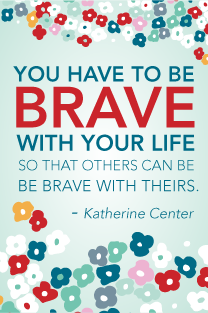Lately I've been learning about my own beliefs: whether I really believe God is trustworthy, what worship is for. Yesterday I had a brief but enlightening conversation with a new worship environment volunteer, who was preparing to create her first prayer spaces in our Sanctuary.
She wanted to use a picture of Mary, but someone said that would be "too Catholic". She also asked me about why we don't have rainbow flags or other symbols to represent our welcome to gay and lesbian people. I've never had to think about those two questions at the same time before, so I answered them separately. ("Wasn't me -- feel free." and "We don't have any representations of any particular group of people inside the Sanctuary -- notice there's no flag, either.")
Together they raise bigger questions: What does it mean to welcome and actively invite everyone while keeping our focus on God? What do I believe about inclusivity, whether of theology or background or sexuality or class?
1. One's own Christian tradition should be cherished and learned from, and to maintain it as a tradition may require some favoritism toward it. No tradition has a monopoly on truth, however, and none is particularly destructive to one's own. If we refuse a detail of worship or theology just because it's "not ours" or is too "theirs", we risk losing the opportunity to know God better and differently, as well as a piece of truth.
2. That said, not all details of worship or theology are either good or useful. My forcing glossolalia as a practice of our church would be more alienating than illuminating. Teaching that sanctification and beatification are functions of the church meant for particular heroes of the faith (especially martyrs and virgins), would, I believe, undermine everything we understand about the universality of sin, the abundance of grace, and the attainability of Christlikeness.
3. Once you enter the Sanctuary, there should be no Jew nor Greek, nor slave nor free. All of the liturgy -- the work of the people -- should point toward God, glorify God, clarify God. If the chancel is the place of focus for all that -- if it is the visible "location" of the kingdom of God -- then placing a flag of any kind makes the people represented (Americans, gays, Greens, Scouts) equal in importance to the kingdom of God. Anywhere else in the Sanctuary and it singles that group out as especially worthy and welcome.
4. That said, if we truly believe in equality in the Spirit, then we must acknowledge that some groups have been historically and systematically rejected by the body of Christ, and that it is our task to extend the invitation and prepare a heavenly welcome. So we regularly use non-white-straight-able-middleclass-Americans in our examples, as well as the non-hyphenates. We may and should designate particular efforts of attraction and affection toward those who would otherwise assume (for good reason) they weren't welcome. Youth, for example, as well as gays. Working class, as well as white collar. Extraverted, as well as introverted. But that is not the point of worship itself, nor of the meeting of the body of Christ.
5. And, because of 1 and 2, we may decide not only to welcome the stranger, but to celebrate the family: to recognize where we lose sight of the "majority" and to recall them into both liturgy and activity. So, if we've been talking about "partnerships" we need to work on "marriages". If we've set our sight on the homeless, we need to be sure we're considering the real spiritual needs of the wealthy, and not merely scorning them in our "inclusivity".
We are all broken. We are all sinful. We are all enslaved until we are not. We are all about Christ.
Friday, September 24, 2010
Subscribe to:
Post Comments (Atom)




No comments:
Post a Comment